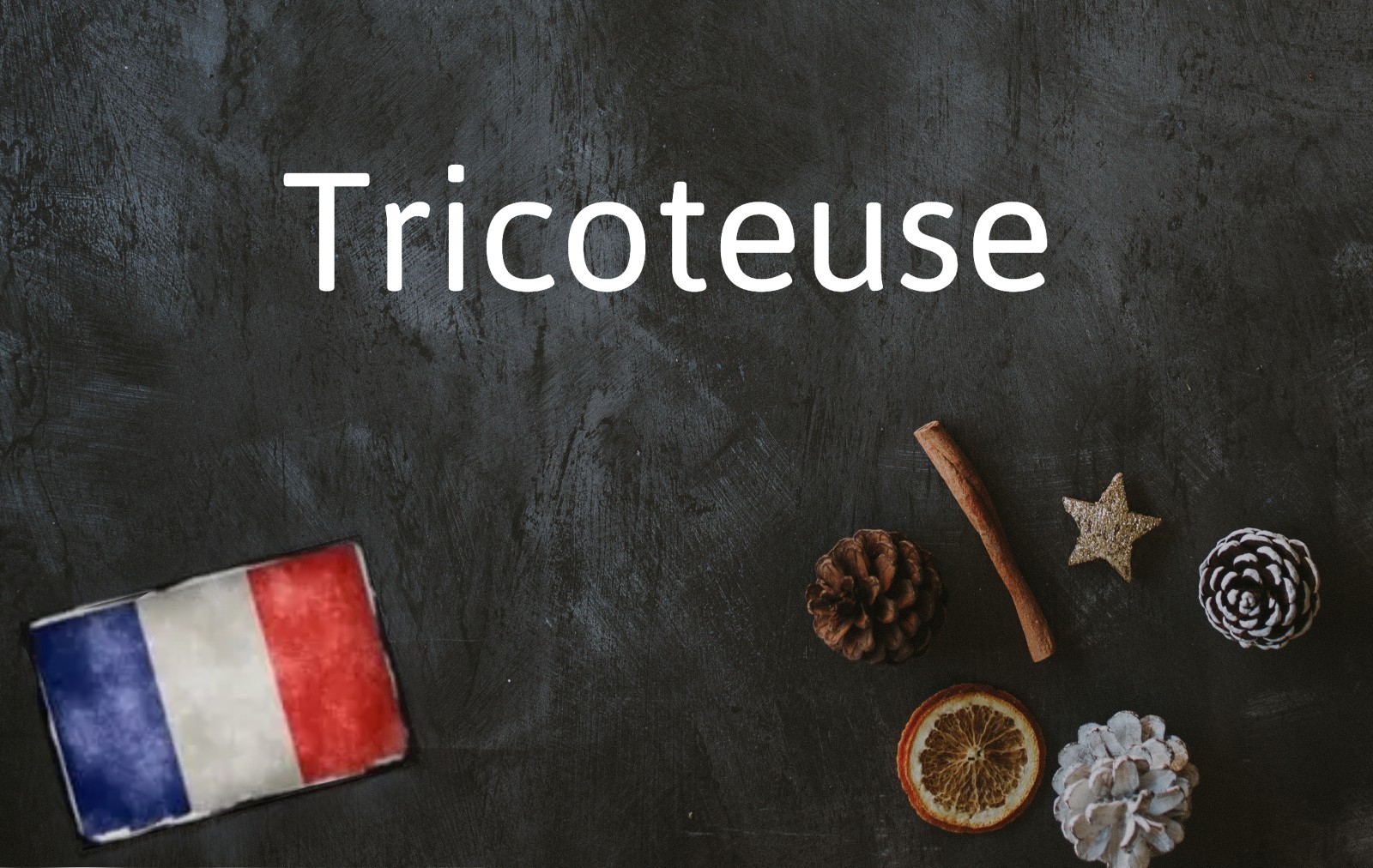
This French crafting term has an interesting history linked to the French Revolution, which gives it its second meaning.
Why do I need to know tricoteuse?
Because this French term has a long, bloody history.
What does it mean?
Tricoteuse – roughly pronounced tree-koe-tuzz – is the French term for a woman who knits, or a knitting woman. The masculine version would be tricoteur.
While the word may appear to have a simple translation – and can be used for people interested in knitting and crafts – it has a very interesting backstory that might make you think twice before using it to describe your French mother-in-law knitting by the fireplace.
Historically, tricoteuse goes back to the French Revolution and refers to a group of women who would sit and knit at meetings of the Revolutionary Tribunal, and allegedly sat next to the guillotines during the Reign of Terror and watched the executions, still while calmly knitting.
The idea is that, due to sexism, they were not allowed to participate in the action, but they wanted to be involved nonetheless.
Advertisement
The term has taken on a wider – and negative – connotation, due to the implication that these women were bloodthirsty, seeking to witness and participate in the public executions.
It was popularised in the English-speaking world through Charles Dickens’ novel A Tale of Two Cities.
These days it can be used to describe anyone – although it is usually used for women – who is seen as taking pleasure in the misfortune of others, or who is seeking to bring down a public figure or group. It’s sometimes used to reference online ‘pile-ons’ or lynch mobs.
It’s perhaps more commonly used in English than in French, but it surfaced during the recent mass rape trial of Dominique Pelicot in southern France – a defence lawyer described the feminists protesting outside the court as tricoteuses, which was denounced as a misogynistic insult.
Nevertheless, you technically can describe yourself or someone you know as a tricoteuse, if they are actually a knitter, though beware of the possible historical implication.
It comes from the verb tricoter (to knit) while détricoter (literally ‘un knit’) can be used as ‘unpick’ or ‘unravel’ is in English, to denote something being weakened or watered down. It’s often used in relation to laws or regulations eg Il est hors de question de détricoter nos lois – It is out of the question to unravel our laws
Colloquially, tricoter can also describe ‘preparing something thoroughly’, oftentimes an argument or a speech.
Use it like this
Ma mamie est une tricoteuse. Elle m’a appris tout ce que je sais. – My grandma is a knitter. She taught me everything I know.
Il a qualifié les militantes de tricoteuses, affirmant qu’elles n’étaient intéressées que par la vengeance. – He compared the activists to the female knitters during the Revolution, claiming that they were only interested in revenge.
(Except for the headline, this story has not been edited by PostX News and is published from a syndicated feed.)

